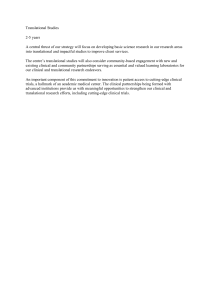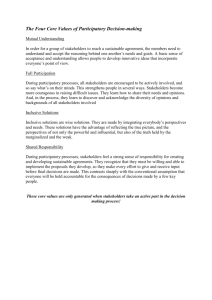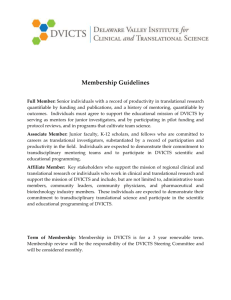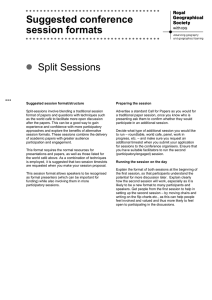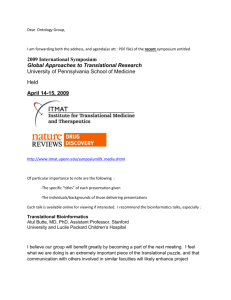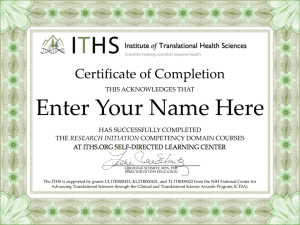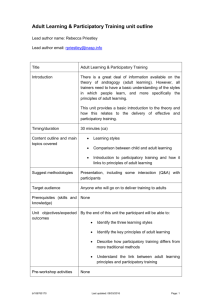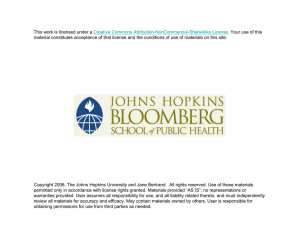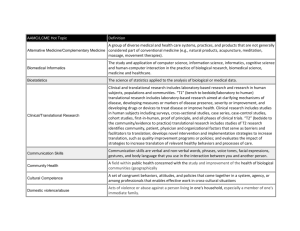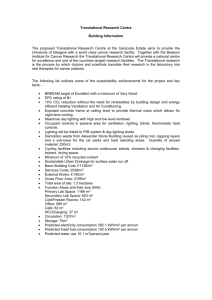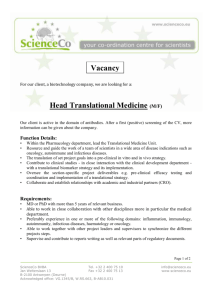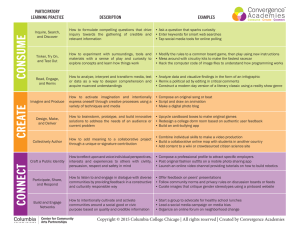Time for a Paradigm Shift in How We Transfer Knowledge?
advertisement
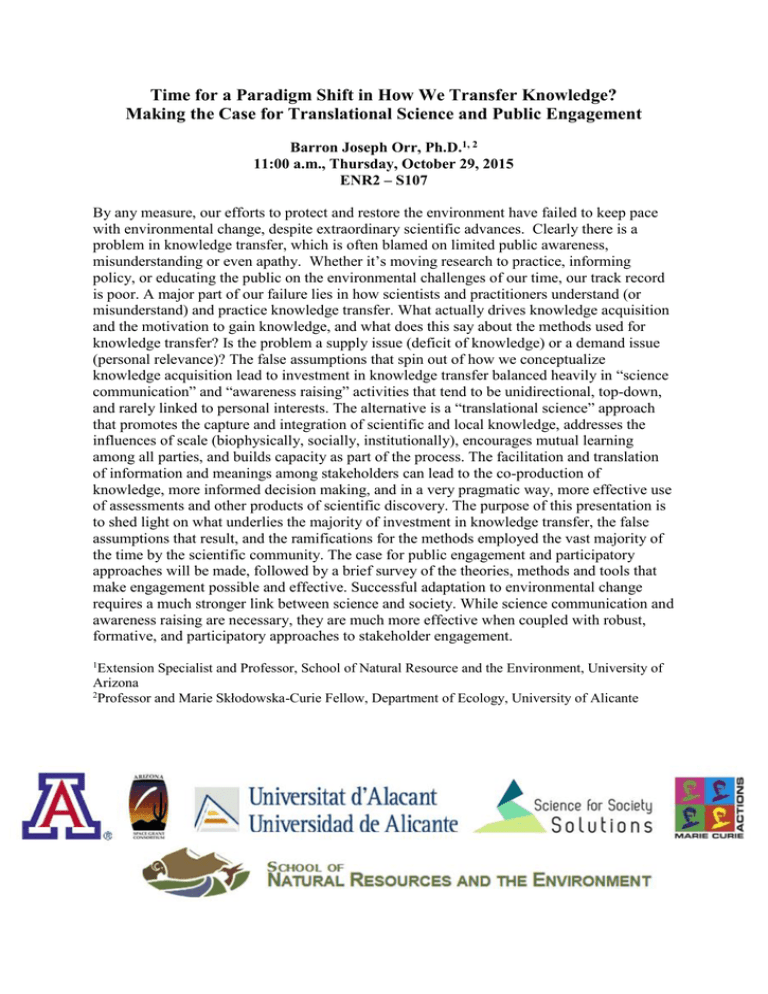
Time for a Paradigm Shift in How We Transfer Knowledge? Making the Case for Translational Science and Public Engagement Barron Joseph Orr, Ph.D.1, 2 11:00 a.m., Thursday, October 29, 2015 ENR2 – S107 By any measure, our efforts to protect and restore the environment have failed to keep pace with environmental change, despite extraordinary scientific advances. Clearly there is a problem in knowledge transfer, which is often blamed on limited public awareness, misunderstanding or even apathy. Whether it’s moving research to practice, informing policy, or educating the public on the environmental challenges of our time, our track record is poor. A major part of our failure lies in how scientists and practitioners understand (or misunderstand) and practice knowledge transfer. What actually drives knowledge acquisition and the motivation to gain knowledge, and what does this say about the methods used for knowledge transfer? Is the problem a supply issue (deficit of knowledge) or a demand issue (personal relevance)? The false assumptions that spin out of how we conceptualize knowledge acquisition lead to investment in knowledge transfer balanced heavily in “science communication” and “awareness raising” activities that tend to be unidirectional, top-down, and rarely linked to personal interests. The alternative is a “translational science” approach that promotes the capture and integration of scientific and local knowledge, addresses the influences of scale (biophysically, socially, institutionally), encourages mutual learning among all parties, and builds capacity as part of the process. The facilitation and translation of information and meanings among stakeholders can lead to the co-production of knowledge, more informed decision making, and in a very pragmatic way, more effective use of assessments and other products of scientific discovery. The purpose of this presentation is to shed light on what underlies the majority of investment in knowledge transfer, the false assumptions that result, and the ramifications for the methods employed the vast majority of the time by the scientific community. The case for public engagement and participatory approaches will be made, followed by a brief survey of the theories, methods and tools that make engagement possible and effective. Successful adaptation to environmental change requires a much stronger link between science and society. While science communication and awareness raising are necessary, they are much more effective when coupled with robust, formative, and participatory approaches to stakeholder engagement. 1 Extension Specialist and Professor, School of Natural Resource and the Environment, University of Arizona 2 Professor and Marie Skłodowska-Curie Fellow, Department of Ecology, University of Alicante
